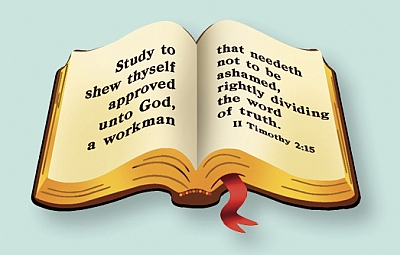Does the Bible teach that people should be afraid of God? No, it does not. The Scriptures never say that God wants His people to be afraid of Him. So, What does the Word say? God frequently tells His people to “fear not” and to “be not afraid.” Psalms 34:4 says, “I sought the Lord, and he heard me, and delivered me from all my fears.” II Timothy 1:7 reads, “For God hath not given us the spirit of fear; but of power, and of love, and of a sound mind.” God clearly does not want us to be afraid at all, and He desires to deliver us from all fears. Yet even born-again Christians can manifest fear toward God.
This fear comes from misunderstanding God’s Word. From reading the King James Version and other English versions and translations of the Bible, some people misunderstand the meaning of the word “fear” in relation to God. Others don’t understand figures of speech in the Bible and are afraid of God because they believe He watches everything they do—with the intention of noting their mistakes, faults, and shortcomings in order to punish them with consequences, either in this life by causing sickness and hurt, or after death by punishing them eternally. Still others are afraid of God because they do not understand the Hebrew idiom of permission and think that God does bad things to people and to the earth. A right understanding of that Word shows us that there is no basis for being afraid of God, Who lovingly cares for His people.
Let’s go to God’s Word to examine these misunderstandings that lead people to think they should be afraid of God. Rightly dividing the Scriptures will enable us to better understand how this fear has crept into people’s thinking and to more clearly see the truth that God doesn’t want His people to be afraid of Him. God, Who so loved that He gave, clearly desires and deserves our greatest love, respect, and reverence.
The first reason people may think God wants them to be afraid of Him is that they misunderstand the meaning of the word “fear” when it is used in the Bible in relation to God. In modern English, the word “fear” is almost always associated with danger and apprehension and implies anxiety and dread. In the Bible, the word “fear” can have that meaning, but it also has another usage of “reverence, awe, respect.” We can see both usages of “fear” in two scriptures from the Old Testament, Psalms 19:9 and Psalms 27:1.
Psalms 19:9:
The fear of the Lord is clean, enduring for ever: the judgments of the Lord are true and righteous altogether.
The Companion Bible by E. W. Bullinger says that “fear” in Psalms 19:9 would be better translated as “reverence.” Often when the term “fear of the Lord” is utilized, the context will show it is referring to the reverence or respect that a believer has toward God.
In contrast, Psalms 27:1 states:
The Lord is my light and my salvation; whom shall I fear? the Lord is the strength of my life; of whom shall I be afraid?
The meaning of the word “fear” in this verse is clear right where it is written. We can see that “fear” means to feel danger or apprehension about another person. We can also see that the psalmist had no such negative feelings about the Lord! Because God is the light, the salvation, and the strength of the psalmist’s life, he doesn’t have to be afraid of or fear anyone.
So if we misunderstand the word “fear” when it is used in the Bible regarding how we should view God, our attitude toward God can become one of apprehension and dread. However, God doesn’t want us to be afraid of Him. Nor does He want us to have dread or anxiety toward Him. Rather, God wants our respect and reverence because of His loving-kindness toward us and His powerful strength that He exerts for us.
A second reason some people mistakenly manifest fear toward God is because they think God is always watching them, looking to catch them doing something wrong so He can punish them, either in this life or eternally. But God doesn’t deal with us according to our iniquities; rather, He is a merciful God Who forgives our sins (Psalms 103:10-12).
Part of a verse in the Old Testament is cited by some to justify this fearful attitude toward God.
II Chronicles 16:9:
For the eyes of the Lord run to and fro throughout the whole earth, to shew himself strong in the behalf of them whose heart is perfect toward him….
In this verse the figure of speech condescensio (attributing human characteristics to God) is used to call attention to the way God watches over His people everywhere for opportunities to show His grace and favor. God is Spirit. He has no literal “eyes” to see people on the earth. God is not looking around corners, checking on our behavior. Rather, God is omniscient—He has infinite awareness and complete knowledge. He knows everything. Although the words used in this verse are not literally true to fact, the figure of speech certainly grabs our attention and paints a vivid picture in our minds of a God Who knows what is happening on the earth….
This is an excerpt from the July/August 2014 issue of The Way Magazine.
Copyright© 2014 by The Way International. All rights reserved.
For more information on subscribing to The Way Magazine, Click Here

